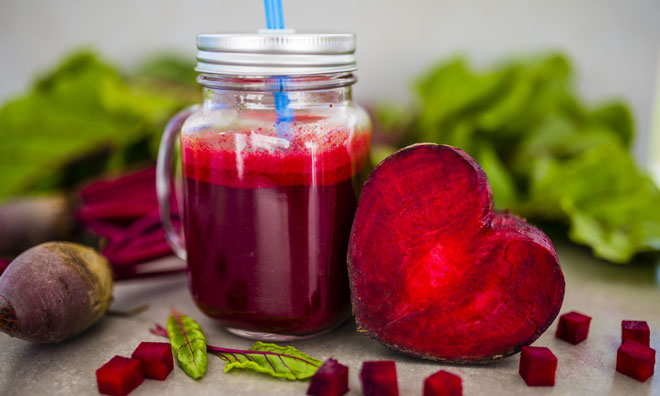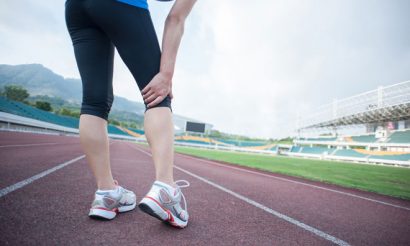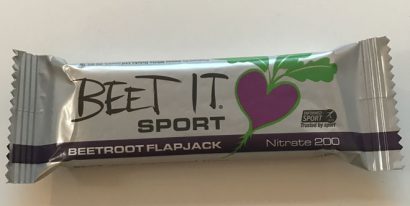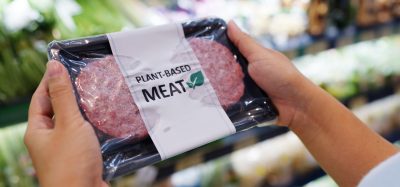Can beetroot help relieve muscle pain after exercise? | Health Ingredients Month
- Like
- Digg
- Del
- Tumblr
- VKontakte
- Buffer
- Love This
- Odnoklassniki
- Meneame
- Blogger
- Amazon
- Yahoo Mail
- Gmail
- AOL
- Newsvine
- HackerNews
- Evernote
- MySpace
- Mail.ru
- Viadeo
- Line
- Comments
- Yummly
- SMS
- Viber
- Telegram
- Subscribe
- Skype
- Facebook Messenger
- Kakao
- LiveJournal
- Yammer
- Edgar
- Fintel
- Mix
- Instapaper
- Copy Link
Posted: 26 January 2017 | Tom Clifford, PhD, Sport and Exercise Nutrition, University of Northumbria | No comments yet
As part of new Food’s Health Ingredients Month, we hear from UK academic Tom Clifford and his research on beetroot as the new muscle pain relief superpower following heavy exercise…


Welcome to New Food‘s ‘Health Ingredients Month’ !
Throughout the online series we will be providing exclusive insight from Mintel, Innova Market Insights and leading food ingredients consultants as well as from Beneo, Kerry and Arla. Our aim is to pinpoint in particular how rapidly changing consumer trends are dictating how the food and beverage industry is evolving.
For an initial look at who is directly contributing, we invite you to take a look at our graphic below and we hope that you enjoy the continuation of the series throughout 2017.


In the first article in the series, we begin with a piece from British academic Tom Clifford from the University of Northumbria as he discusses the scientific value of beetroot to sports recovery…
In the past decade, beetroot has gained a reputation for being able to boost exercise performance. Indeed, a number of University research studies have shown that consuming beetroot juice before running, cycling, rowing and even football can enhance performance by making you exercise for a little longer (see Jones, 2014 for a review on the topic).
However, the same phytonutrients in beetroot juice that might help you exercise for longer, i.e., nitrate and polyphenols, might also help you recover quicker too. This is believed to be due to the fact that these nutrients have antioxidant, anti-inflammatory and even anti-proteolytic effects. Such effects might help to reduce any muscle damage caused by free radicals, inflammatory and protease cells after strenuous physical exercise. This, in turn, could enhance recovery.
Over the past few years, me and my team at Northumbria University have conducted a series of studies to try and answer this question; specifically, whether consuming beetroot juice after exercise can help speed up the recovery process, and by recovery, we specifically mean reduce the aches and pains that often linger in the exercised muscles in the days after exercise, and reduce the decrements in muscle strength and function that often accompany this muscle pain.
While we found some evidence that beetroot juice could help accelerate the recovery of muscle function after strenuous exercise (i.e., the ability to jump as high as you could before exercise was restored at a quicker rate), we more consistently found that beetroot juice can reduce muscle pain after exercise. Indeed, in all but 1 of the studies that we conducted (which only resulted in a low level of muscle pain), consuming 2-3 bottles (250 ml) of beetroot juice for 3 days after exercise, was more effective than a placebo for attenuating muscle pain in the legs. Two of the three studies are published and available online (Clifford et al., 2016a; Clifford et al., 2016b).


In these studies (and our unpublished work), we measured muscle pain with a pressure pain algometer. Put simply, we applied pressure to the calf and quadriceps muscle of each participant before and after exercise (and consuming either beetroot juice or a placebo) and asked them to notify us at the first point that they felt pain in their muscles. The pressure was applied directly to each muscle with a hand held algometer that has a flat cylindrical headed probe. The exercise tasks the participants did in these studies were designed to induce pain in the lower limbs (drop jumps from a high box and repeated sprints on an indoor track) and therefore we anticipated that after exercise their tolerance for pain, by means of pressure from this algometer, would be reduced. As hypothesized, the participant’s tolerance for pain was substantially reduced; however, we found that the participants who had consumed beetroot juice after exercise tended to tolerate greater levels of pressure, indicating that they experienced less muscle pain than those in the placebo group.
Although this was the first evidence that beetroot juice can reduce exercise-induced muscle pain, it turns out that research from 2010 hinted that beetroot juice might have analgesic properties. In 2010, a group of researchers from Poland found that consuming betalains (35 – 100 mg capsules, twice daily for 10 days), which are the purple/violet nutrients that give beetroot its resplendent colour, reduced joint pain in individuals presenting with symptoms of osteoarthritis (Pietrzkowski et al., 2010). The same research group corroborated these findings in a study in 2014, in which the same betalain supplement (100 mg per day) reduced self-reported joint pain after 10 days of treatment (Pietrzkowski et al., 2014). Given these findings, and the results from our own work, we speculated that the betalains in beetroot juice (which were present in high concentrations: see Clifford et al., 2016c) were primarily responsible for the pain reliving effects observed.
It is speculated that the analgesic effects of the betalains is due to a reduction in inflammation, given that betalains have been shown to possess strong anti-inflammatory effects in a number of studies (Clifford et al., 2015). However, the precise mechanisms are still not known, and there are other possible mechanisms—and nutrients in beetroot juice, that could be involved.


Case Study: New Food recently covered a piece on new Beet It Sport’s innovative beetroot flapjack.
Regardless of what the precise mechanisms are, what does this research all mean? Should we all start drinking beetroot juice after playing sport or going to the gym to reduce muscle pain? Well, to answer that question, it is important to remember that the muscle pain the participants in these studies experienced would be described as quite severe. Indeed, the exercise tasks were specifically designed to induce muscle pain. Therefore, beetroot might not be useful for only mild muscle pain but instead limited to situations when exercise-induced muscle pain far exceeds the norm. In fact, in one of our studies, in which a group of runners completed a marathon race, they did not experience much muscle pain at all, and beetroot juice was of no benefit (Clifford et al., 2016d).
Thus, the best advice at present is that if you are experiencing quite a lot of muscle pain after you exercise, perhaps when you haven’t been to the gym for a long time, are starting a new exercise program, or you had a particularly hard session, then drinking beetroot juice might help to relieve some of the pain in your muscles. Hopefully, many of the unanswered questions we currently have regarding the effects of beetroot juice on muscle pain will begin to be explored in the near future.
About the Author
Tom Clifford
PhD, Sport and Exercise Nutrition
Faculty of Health and Life Sciences,
Northumbria University,
Newcastle, UK
Email: [email protected]
Twitter: @tomclifford7
References
Clifford, T., Allerton, D. M., Brown, M. A., Harper, L., Horsburgh, S., Keane, K. M., … & Howatson, G. (2016d). Minimal muscle damage after a marathon and no influence of beetroot juice on inflammation and recovery. Applied Physiology, Nutrition, and Metabolism, (ja).
Clifford, T., Bell, O., West, D. J., Howatson, G., & Stevenson, E. J. (2016a). The effects of beetroot juice supplementation on indices of muscle damage following eccentric exercise. European Journal of Applied Physiology, 116(2), 353-362.
Clifford, T., Berntzen, B., Davison, G. W., West, D. J., Howatson, G., & Stevenson, E. J. (2016b). Effects of beetroot juice on recovery of muscle function and performance between bouts of repeated sprint exercise. Nutrients, 8(8), 506.
Clifford, T., Constantinou, C. M., Keane, K. M., West, D. J., Howatson, G., & Stevenson, E. J. (2016c). The plasma bioavailability of nitrate and betanin from Beta vulgaris rubra in humans. European Journal of Nutrition, 1-10.
Clifford, T., Howatson, G., West, D. J., & Stevenson, E. J. (2015). The potential benefits of red beetroot supplementation in health and disease. Nutrients, 7(4), 2801-2822.
Jones, A. M. (2014). Influence of dietary nitrate on the physiological determinants of exercise performance: a critical review. Applied Physiology, Nutrition, and Metabolism, 39(9), 1019-1028.
Pietrzkowski Z., N. B., Spórna, A., Stalica, P., Tresher, W., Keller, R., Jimenez, R., Michałowski, T., & Wybraniec, S. (2010). Influence of betalain-rich extract on reduction of discomfort associated with osteoarthritis New Medicine, 1, 12-17.
Pietrzkowski, Z., Argumedo, R., Shu, C., Nemzer, B., Wybraniec, S., & Reyes-Izquierdo, T. (2014). Betalain-rich red beet concentrate improves reduced knee discomfort and joint function: a double blind, placebo-controlled pilot clinical study. Nutr Diet Sup, 6, S59042.
New Food’s ‘Health Ingredients Month’
Tom Clifford, PhD, Sport and Exercise Nutrition, University of Northumbria – Can beetroot help relieve muscle pain after exercise?
Petr Menšík, Manager, EU Affairs, ECCO, The European Consulting Company – Defining the term ‘natural’ in food and beverage
Claus Andersen, Category & Application Manager, Arla Foods Ingredients – How dairy can lead a new waste revolution
Alex Murtough, Field & Marketing Manager, Oppo – Healthy food? It’s out of reach for most of us
Kevin Bael, Product Manager, Specialty Rice Ingredients, Beneo – The unique, natural value of rice starch
Andrea Zangara, Centre for Human Psychopharmacology, Swinburne University – Plant-based ingredients and their cognitive benefits









